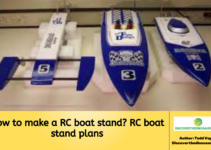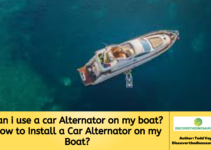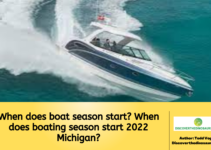It’s no secret that boats are a common cause of collisions on the water. With so many boats out and about, it can be difficult to determine which is at fault when two vessels collide. While there are many factors that can contribute to a boat collision, some causes are more common than others.
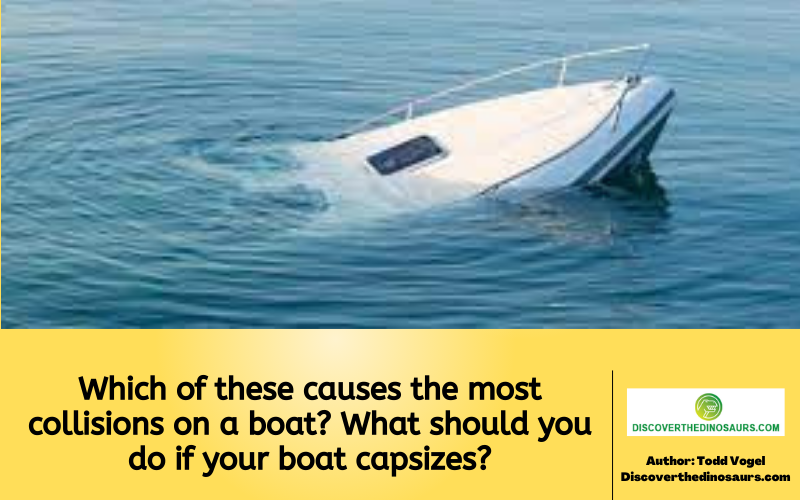
Which of these causes the most collisions on a boat? What should you do if your boat capsizes?
In this blog post, we’ll take a look at the three most common causes of boat collisions and discuss how you can avoid them. Keep in mind that these tips are just general advice – always consult with an experienced boating safety expert before heading out on the open water.
With only 5 minutes, Todd Vogel will answer the question “Which of these causes the most collisions on a boat? What should you do if your boat capsizes?” and more relevant information. Let’s find out!
The Most Common Reasons for Boating Accidents
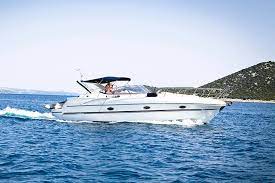
The Most Common Reasons for Boating Accidents
Boating accidents can be devastating, both financially and emotionally. They often have a lasting impact on all those involved. When boating accidents do happen, they are usually caused by the following factors:
- Operator inexperience: Many people who are not experienced at handling boats find themselves in trouble while out on the water.
The operator may also lack basic safety knowledge and fail to follow important rules of boating etiquette, such as keeping an eye on other vessels or avoiding wakes created by larger boats.
- Speeding: Boaters who go too fast for conditions cause many collisions each year, either because of limited visibility due to fog or because speeding makes it harder to avoid other vessels.
While the posted speed limit is meant to be a guideline for safety, when it is ignored, accidents are more likely to occur.
- Impaired boating: Drinking alcohol or using other impairing drugs and then operating a boat can lead to tragic consequences on the water.
This is because impaired operators may be less aware of their surroundings and less able to react quickly in emergency situations.
- Equipment failure: Boats that are not well-maintained pose risks to those onboard. Engines may overheat, steering systems may fail, navigational equipment may stop working, and many other problems can occur that compromise safety.
Boat owners should ensure they have proper equipment and adequate amounts of fuel before heading out onto the water.
To avoid serious injuries while boating, it is important to follow safety guidelines, be aware of others on the water, and keep speeds low in poor weather conditions. If an accident does occur, seeking legal help as soon as possible can ensure that victims are properly compensated for their injuries.
The most common causes of boating accidents are typically operator inexperience, speeding, impaired boating (such as drinking alcohol), and equipment failure.
By following safety guidelines, being aware of other boats around you, and taking appropriate measures during poor weather conditions, you can help minimize your risk of being involved in a boating accident.
However, if one does occur despite these precautions, it is important to seek legal help right away to ensure that your rights and interests are protected.
What is the most common type of boating accident that results in death?
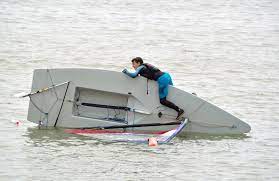
What is the most common type of boating accident that results in death?
There is no single type of boating accident that results in death more often than others. Some possible causes of fatal boating accidents include operator inexperience, speeding, impaired boating (such as drinking alcohol), equipment failure, and poor weather conditions.
To help minimize your risk of being involved in a fatal boating accident, it is important to follow safety guidelines when on the water, be aware of other boats around you, and take appropriate measures during adverse weather conditions.
However, if such an accident does occur despite these precautions, it is important to seek legal representation right away to ensure that your rights are protected throughout the process.
The Legal Procurement Center is
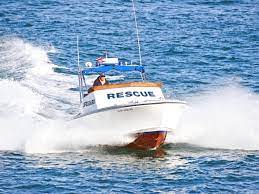
The Legal Procurement Center is
a nationwide organization that connects victims of accidents with reputable personal injury lawyers. We can help you find an attorney in your area who has experience handling boating accident cases.
Our service is free, and there are no obligations to hire the lawyer we connect you with. To learn more about how we can help, call us today at 1-800-777-7777 or fill out our online form for a free consultation.
Boating Accident and Injury Attorneys with Years of Experience
The most common cause of collisions on a boat is negligence. This can be either the negligence of the operator of the other vessel, or the negligence of the operator of your own vessel. Inattention, inexperience, and alcohol are all leading causes of boat collisions.
If you have been involved in a collision, it is important to speak with an experienced attorney who can help you determine who was at fault and what your options are for recovery.
At The Boat Accident lawyers, we have represented many clients who have been involved in collisions on the water. We understand the unique challenges that these cases present, and we have the experience and resources to help you get the compensation you deserve. Contact us today for a free consultation.
F.A.Q about “which of these causes the most collisions on a boat”
What is the most common cause of boat collisions?
According to the most recent recreational boating statistics from the United States Coast Guard (USCG), operator inattention is the most common cause of boating accidents in 2019.
Operator inattention can result in collisions, passengers falling overboard, and slip-and-falls onboard, all of which can result in serious injuries to passengers and crew members.
What is the most common cause of boating accidents, according to this quizlet?
According to statistics from the United States Coast Guard, what is the primary cause of the majority of fatal boating accidents? Inadequate operator judgment and a general lack of awareness
What is the most common cause of collisions on PWC?
In fact, the most common reason for PWC accidents is colliding with another object, which is usually another PWC. Other factors that contribute to PWC accidents include: Going too quickly: This is one of the most common reasons for accidents involving personal watercraft.
When it comes to fatal boating accidents in Florida, which of the following is the most common?
According to the Coast Guard’s 2019 Recreational Boating Statistics Report, 613 people were killed in boating accidents in the United States in 2019. Alcohol is the leading cause of fatal boating accidents in Florida, making it critical for anyone who is involved in boating to be aware of the dangers of drinking and driving while on the water.
What is the most common reason for boating accidents in Florida, according to this quiz?
Falling overboard and drowning are the most common causes of boating fatalities.
Conclusion
It is important to be aware of these causes of collisions when on a boat, in order to stay safe and avoid accidents. By following the advice provided in this article, you can help keep yourself and your passengers safe while out on the water.
Have you ever been involved in a boating accident? We would love to hear about it!
This discoverthedinosaurs.com post will show the information about “Which of these causes the most collisions on a boat”
- what should you do if your boat capsizes
- what type of boating emergency causes the most fatalities
- what should you do first when a vessel capsizes
- what is the best way to avoid running aground
- what is the major cause of fatalities involving small boats
- which of these would be considered a safe speed?
- what should you do to avoid colliding with another boat?
- what should you do if your small open boat capsizes?

